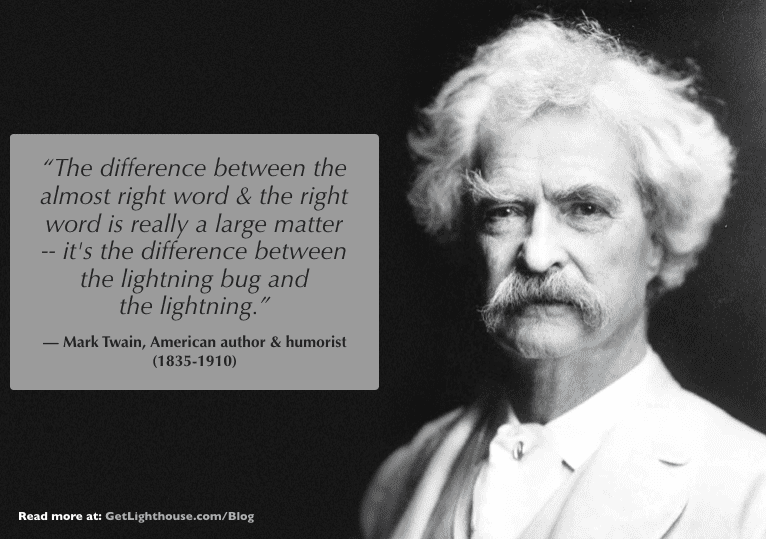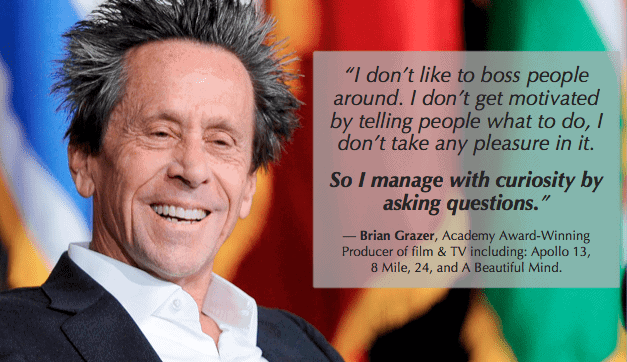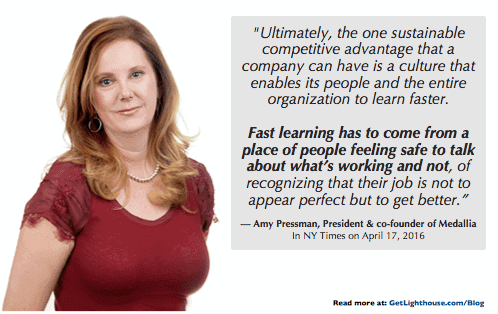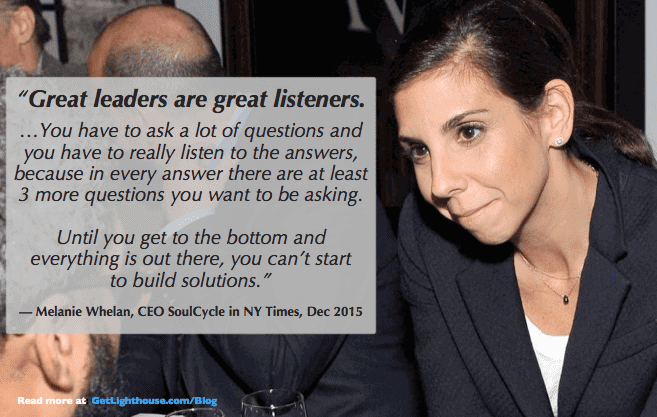What could make you a great manager without major changes? How could just a couple words have that kind of impact?
Believe it or not, I already used both words in this post. And if you start using them more, you can be a great manager, too.
Today, we tackle why these words matter, and how you can apply them.
Why using the words "What" and "How" can help make you a great manager
I learned the power of "what" and "how" from the amazing book, Never Split the Difference. While the book focused on applying them in negotiation situations, I have found they can help all aspects of my life, especially at work as a manager.
In the spirit of sharing and paying it forward to the Lighthouse community, I want to teach you about the power of "what" and "how", too.
In my experience, the best ways to learn are through example, and understanding the underlying reason why you would do something. Below are a few key reasons why you'll want to start trying to use "what" and "how" more often, and some examples you can start to use at work today.
1) A great manager uses the right questions to lead their teams well
We've discussed it before on the Lighthouse blog: curiosity and asking questions are an essential management skill for great leaders. Developing the habit of asking questions is the best way to ensure you lead by building consensus, and find the best ideas, not just dictating to others.
However, as important as asking questions is to your success as a great manager, what you ask, and how you ask them is equally important.
Especially when you're starting out, it's hard to always have the right question ready in every situation. Rather than trying to memorize a myriad of questions, just remember "What" and "How."
No matter your situation, asking "what" or "how" as part of a question sets you on a good path. Why? Because it's the start of a conversation.
Think about any basic what or how question:
- How does this work for you?
- What about this doesn't work for you?
- What alternatives did you consider before choosing that?
- How can I help you avoid this problem in the future?
- What questions do you have about these tasks?
Can you answer any of those with a yes or no? You cannot.
Instead, it sparks a discussion, which can lead to more "what" and "how" questions, and a clear understanding together of whatever you're working on.
The structure that a "what" or "how" question forces you to follow gives you a framework for asking better questions in any situation.
2) A great manager makes it safe to talk about problems and challenges
One of the biggest mistakes bad managers unknowingly make is causing important things to go unsaid. This happens because they fail to make it safe to have the discussions.
There are many reasons people may feel uncomfortable talking about difficult subjects, and some of the most common are:
- They do not believe their manager is listening or cares.
- There is a fear that the messenger will be proverbially shot.
- Team members see that candor is punished instead of rewarded.
Even if you're trying hard to avoid the above issues, you can still make people feel uncomfortable, or scared, to bring issues to you. Once again, "what" and "how" can help you.
What & How >>> Why
When something bad happens, the first instinct we all have is to exclaim something like, "Why did you do that?!?"
Unfortunately, why questions tend to work against their desired affect.
Why questions are threatening. It puts people on the defensive instantly, which shuts down any hope of a productive discussion about a root cause and a shared discussion about solutions. It can make people feel like you already assume they're guilty.
Consider the alternative of asking, "How did you arrive at that decision?" or "What alternatives did you consider before making that choice?"
Even if you have to grit your teeth a little as you ask it, you're likely to get a much better response as you shift the discussion to their choices with "what" and "how" questions, as opposed to seemingly personally attacking them with "why" questions.
3) A great manager is always improving their listening skills
A big part about being a great manager is listening. Listening to your team's ideas, problems, and needs.
And how do you discover those? By asking good questions.
There are few better questions you can ask than those that start with "What" and "How". They're a safe way to explore decision making, and reveal what's really on your team's minds.
Best of all, the habit of asking "what" and "how" questions will change how you think about your discussions with your team. If you've ever tried to use "but" less often in sentences and instead use "and" with your team, you know how powerful small shifts in language can really be.
The act of structuring a question to start with "what" or "how" leads to a fundamental change in the questions themselves. It challenges you to identify areas to explore with your team, and challenges your team to bring more to the table. "What" and "how" questions are the antithesis of having a "yes man" team, because it forces everyone to think.
Better questions, better results.
It's a worthy exercise to practice asking better questions. By remembering to start with "What" and "How" you can significantly improve the questions you ask, and the resulting outcomes of the discussions sparked by asking them.
You'll show your team you want to understand their perspective, and value their input. Also, you'll make it feel safer to discuss difficult subjects with you, because they know the questions will not feel like a "guilty until proven innocent" interrogation, nor a one-sided lecture from you.
Next time you want input from your team, think about how you can use a few "what" or "how" questions to get everyone engaged.








